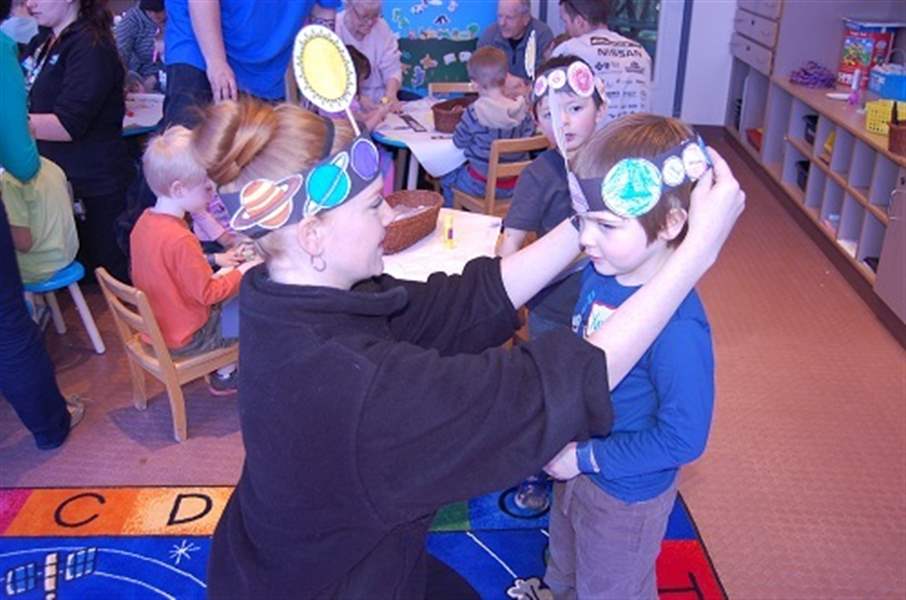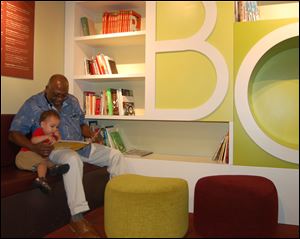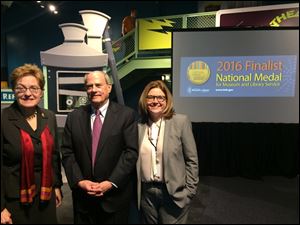
The importance of early STEM education
STEM education increases development in young children
3/13/2017
TOLEDO, Ohio – Children are natural born scientists and have an innate interest in the world around them. By exploring their surroundings and constantly asking questions, a child’s brain will absorb more information in the first five years of development than at any other time. Early exposure to topics like science, technology, engineering and math, or STEM, is shown to enhance learning skills in children under five years old.

The National Academies Press recently published a study that found that the effects of studying science at an early age enhances the development of many skills including language, logic and problem solving – all crucial skills to develop before a child reaches kindergarten.
Children thrive and learn most when they are exposed to a playful environment that promotes learning through fun activities.
Research shows that early exposure to science creates a spark that can be maintained well into a child’s school years and attracts students to STEM fields. Young children are active learners who engage in science every day as they observe, wonder, experiment and talk about their findings – they learn through play-based inquiry. The Early Learners Collaborative, a national collaboration of 21 science centers working to support early learners through programming, found that the inclusion of informal science organizations in the community are essential because they advocate for a play-based curriculum.
Imagination Station, Toledo’s Science Center, recognizes the need for early STEM education by offering programming and exhibitions dedicated to Pre-Kindergarten (Pre-K) learners.

Imagination Station hosts a Science Story Time each day that incorporates an interactive story and a hands-on activity.
Inside Imagination Station’s Little KIDSPACE children kindergarten age and younger can hop aboard a fire truck, shop in the grocery store or climb a tree house while learning about forces, motion, math and life science.
Every year, the science center offers early childhood programming for families and schools to participate in. Each program reinforces inquiry based learning by including hands-on activities and play. Fall and spring Little Scientist Workshops focus on topics like hunters and predators, building structures and exploring the force of magnets. And Little Scientists Week features activities that introduce building challenges to develop dexterity and coordination.
Last year, Imagination Station announced an expansion to their early childhood education programs. In October, Congresswoman Marcy Kaptur congratulated the science center for receiving a grant from the Institute of Museum and Library Services (IMLS) to develop a comprehensive program that addresses the learning needs of Pre-K children and emphasizes family engagement in education.

Imagination Station was one of thirteen recipients of the IMLS National Leadership Grants for Museums.
“Imagination Station is the perfect facilitator to bring together our regional groups to enhance the STEM education of our youngest citizens,” said Congresswoman Marcy Kaptur.
Informal science centers like Imagination Station recognize the need for early STEM education. By offering different programming, designed specifically for Pre-K learners, children are able to develop skills that extend beyond what they are able to learn at home. Imagination Station serves the community by providing informal science education in a fun, hands-on way that equips both young and old, with valuable life skills.